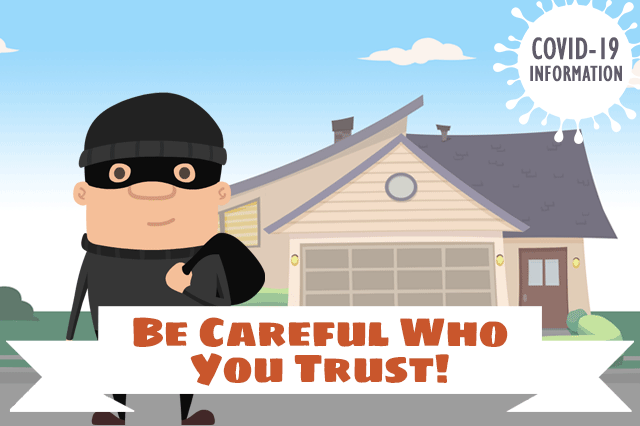Protect Yourself Against Mortgage Scams During COVID-19

The Federal Trade Commission is warning mortgage borrowers to be aware of scams that prey upon homeowners in trouble during the coronavirus outbreak; there are danger signs to pay attention to when dealing with unsolicited offers of help at the present time. One such danger sign? The unsolicited nature of the communication itself.
Not all unsolicited phone calls, text messages, emails, and social media outreach is an inherent scam, but enough of them are that the federal government is keen to prevent the spread of such practices.
The FTC Chairman, Joe Simons, was quoted in an FTC press release advising borrowers about the FTC’s role in prosecuting scam artists taking advantage of Americans who have been affected by COVID-19.
“The FTC is ready to assist businesses that may seek guidance about compliance obligations on consumer protection issues during this unprecedented time,” If you have been contacted by a third party about coronavirus financial relief and suspect a scam artist at work, Simons advises consumers to file a report with ftc.gov/complaint.
It’s been repeated again and again, but enough people forget, don’t know, or ignore the advice; never respond to unrequested contact about anything having to do with money, let alone federal bailout programs that are still being worked out.
You cannot apply for a federal economic stimulus plan that is still under consideration by the House and Senate. Only measures that have been approved and signed into law can be applied for.
Some economic stimulus does not require an act of Congress to pass, but you should always beware of third-party contacts you did not initiate.
What else does the FTC advise for borrowers who want to protect themselves against mortgage scams and other types of economic relief or other coronavirus-related fraud? Never respond to texts, emails or calls about checks from the government--that is a great start. Other measures include the following advice:
- Ignore online offers for vaccinations. Ditto for home test kits.
- Don’t answer, or hang up on all robocalls.
- Beware of unsolicited emails claiming to be from the CDC or WHO. They are not from who you think they are.
- Do not click on links or otherwise respond to sources you do not know.
- Do not respond to calls for donations of gift cards, wire transfers, or other common scam-artist-preferred payment gateways.
Best practices include never clicking on the links provided in a text message, social media post, email, etc. This is one surefire way to avoid getting scammed or becoming a victim of the identity theft schemes transmitted via such platforms.
------------------------------
RELATED VIDEOS:
Sometimes It Pays to Refinance
Don't Forget Your Closing Checklist
Monthly Payments Establish Good Credit

Do you know what's on your credit report?
Learn what your score means.






